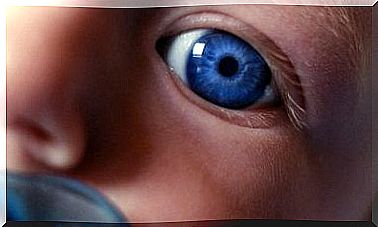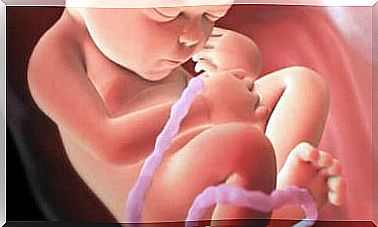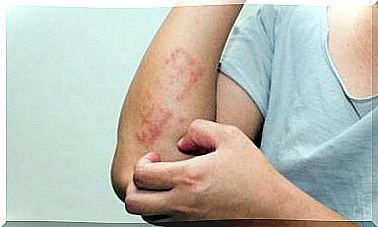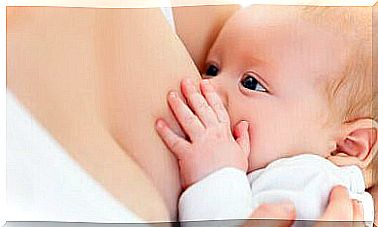Causes Of Fever In Children – You Are Mom
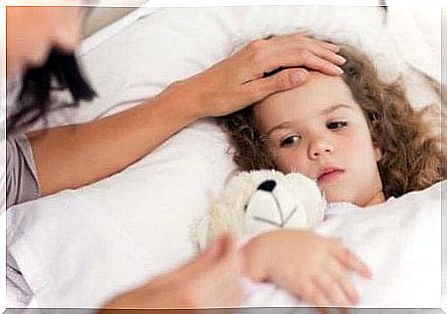
In children, fever is a common symptom that needs to be controlled quickly. It occurs when the child’s body temperature is higher than normal. In most cases, this symptom is not of concern.
Fever is not an illness, but rather a symptom that the body is fighting an infection. Indeed, it is about a mechanism of protection of the organism which stimulates the reactions of the natural defenses.
When children have a fever, it can be difficult for parents to determine the cause. In the majority of cases, the fever is due to a mild viral infection.
Many infections in children cause a fever for up to 48 hours before other related symptoms appear. Find out in this article the main causes of fever in children.
Possible causes of fever in children
Usually, a fever is the result of a normal reaction related to the presence of an infection in the child’s body. Depending on the course and the symptoms that accompany it, it is possible to identify the exact cause of the fever in order to take the right measures.
1. Viral infections
The most common reason is infections associated with the presence of a virus in the body. This is because fever is often the first symptom of a viral infection that can easily be spread through physical contact.
This type of infection leads to many common illnesses such as colds, coughs, flu or diarrhea. It can even cause more serious illnesses.
However, the majority of viral fevers in children last 3 to 4 days. Other types of fevers can last longer, such as the flu or mononucleosis.
2. Bacterial infections
Bacterial infections are considered less common than viral infections. But they can also cause a fever. This type of bacteria is more likely to cause serious illnesses such as pneumonia, joint infections, urinary tract infections, kidney infections, sepsis and meningitis.
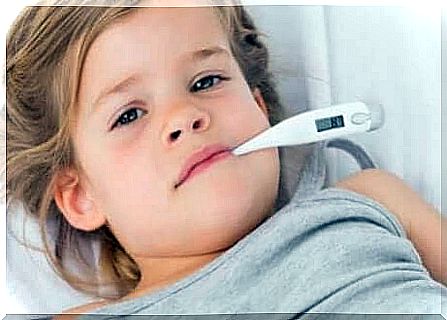
In addition, be aware that bacteria can also cause fever in less serious infections such as ear infections and rashes.
3. Appearance of teeth
In babies, the appearance of teeth is often accompanied by episodes of fever. The first teeth tend to show up around six months. This teething on the gums can temporarily cause a slight increase in body temperature, and consequently, the onset of fever.
On the other hand, young children can also suffer from tooth abscess. A painful bacterial infection that is usually caused by tooth decay and can also be accompanied by fever.
4. Vaccines, possible cause of fever in children
Sometimes children have a fever after a vaccine. This is because many vaccines are designed to trick the immune system into thinking it is detecting an infection. This allows him to develop immunity.
Usually, after a vaccine, the fever is not high and does not last. It occurs in most cases, begins within 24 hours of receiving the vaccine, and lasts between 1 and 2 days.
“When children have a fever, it is sometimes difficult for parents to determine the cause. In the majority of cases, the fever is due to a minor viral infection ”.
5. Allergies
Symptoms of allergies usually include sneezing, watery eyes, a runny nose, and even a rash. However, allergies can also cause fever.
In addition, they sometimes make the child’s body vulnerable to a bacterial or viral infection, which in turn can cause a fever.
6. Inflammatory diseases
Inflammation can be a possible cause of fever in children. One of the most common inflammatory diseases that can cause fever is rheumatic fever.
Be aware that inflammatory disease can lead to permanent heart damage as well as heart failure. Usually it affects children between the ages of 5 and 15.
7. Certain drugs that cause fever in children
As we mentioned above, one of the main causes of fever are viral and bacterial infections. However, drugs can also be involved.
Indeed, it is a side reaction to certain drugs such as, for example, systemic antibiotics and anti-infectives, non-steroidal anti-inflammatory drugs as well as certain medicinal plants.

8. Other causes
In addition to the causes just mentioned, there are other triggers that can cause fever in children. This is the case with food poisoning, excessive exposure to the sun or intense physical activity in the sun.
Finally, fever usually does not require immediate medical intervention. In most infections, it goes away on its own after 48 hours.

